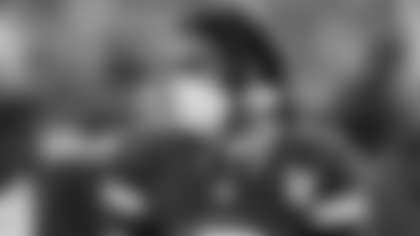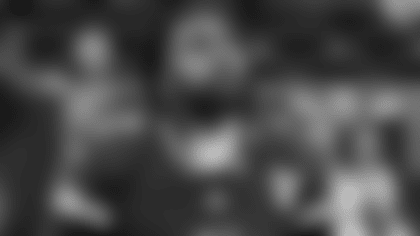was a repeat occurrence a few weeks later against the Giants, and that's when the confrontation occurred. Also, if you keep reading, Owens talked about how he went up to McNabb in the locker room after they all were showered to address the issue again, and he says McNabb just walked away from him; didn't want to talk about the incident.
My bad. Shouldn't have relied on anyone else's interpretation.
Now there has been much written about how self-serving this book is. Well, no kidding. Who in their right mind writes a first-person account and incriminates himself? No one purposely opens closet doors.
Plus, he comes right out in the introduction writing, "Make no mistake; this is not an apology or a defense. This is an explanation." His explanation.
There has been much written about the lack of depth in the book, and that it's written so elementary. Well, come on, what did guys expect? Hey, Owens is a football player, not a writer. And his co-writer, Jason Rosenhaus - yes the brother and agent partner of Drew Rosenhaus - is not an experienced writer, either. Wonder how many dogging the book have written one themselves?
Hey, T.O. is such an easy target these day, like a piñata, you can take a swing blindfolded and go yard. Right?
Now he did throw a bunch of people under the bus, for sure. McNabb was run over forward and backward, subtly and not-so-subtly. His former agent David Joseph took heat. So did Bloch. So did Hugh Douglas, and after reading Owens' seemingly plausible account of the locker room fisticuffs incident, and the recounting of the fight from the grievance hearing, probably rightfully so.
Owens went easy on Andy Reid. Showed utmost respect for Jeremiah Trotter and did a one-eighty on NFLPA executive director Gene Upshaw, going from distrusting to ultimately trusting and respecting. While he devoted nearly two chapters to his broken leg, he never mentioned Roy Williams by name once for being the guy who tackled him.
Read the book, and you learn precisely about the broken leg which caused him to miss the final two games of the 2004 season. You discover how severe the injury was, and the extent he went to rehab, including buying his own hyperbaric chamber for treatment at home and how he carted the thing to Jacksonville, Fla., for Super Bowl XXXIX, even sleeping in the accelerated-healing contraption.
You learn a lot about his grandmother, Alice Black, and his mother, Marilyn Owens. You discover he had no idea who his father was until he was 11, when he had this crush on the girl across the street. Some guy told him he couldn't hang around with her like that, that she's your half-sister - my daughter, and I'm your father.
You get his version of how the interview went down with Syracuse freshman and friend Graham Bensinger, the ESPN intern whose questions gave Owens just enough rope to hang himself with the Eagles organization. Also an account of his bows on the Texas Stadium midfield star, the Sharpie incident and the Desperate Housewives intro to that Monday Night Football game with the Cowboys, where he insists the Eagles organization did some serious back-peddling on after the fact.
But to me, the predominant theme of the book, from beginning to end, from San Francisco to Dallas is this:
His thirst to become a free agent so he could get paid like the best receiver in the game. That's what caused problems in San Francisco, especially after his agent missed filing a letter with the NFLPA to void his contract, and that's what acerbated his distain for the Eagles.
He admits, just as we suspected a year ago, "I didn't want to play out 2005 for $3.25 million only to get cut afterward, because I couldn't win. First and foremost, if I played the 2005 season under my existing contract and got hurt, I would get cut and could wind up with nothing if I reinjured my fibula or ankle . . . I did not want to take the risk."
Because he knew the Eagles contract Upshaw told him not to sign had that $5 million roster bonus due the following March, and he realized the Eagles had a history of not keeping Thirtysomething players around at a high dollar. Finally, as the NFLPA warned him, he realized he was playing on a two-year deal.
He wanted





